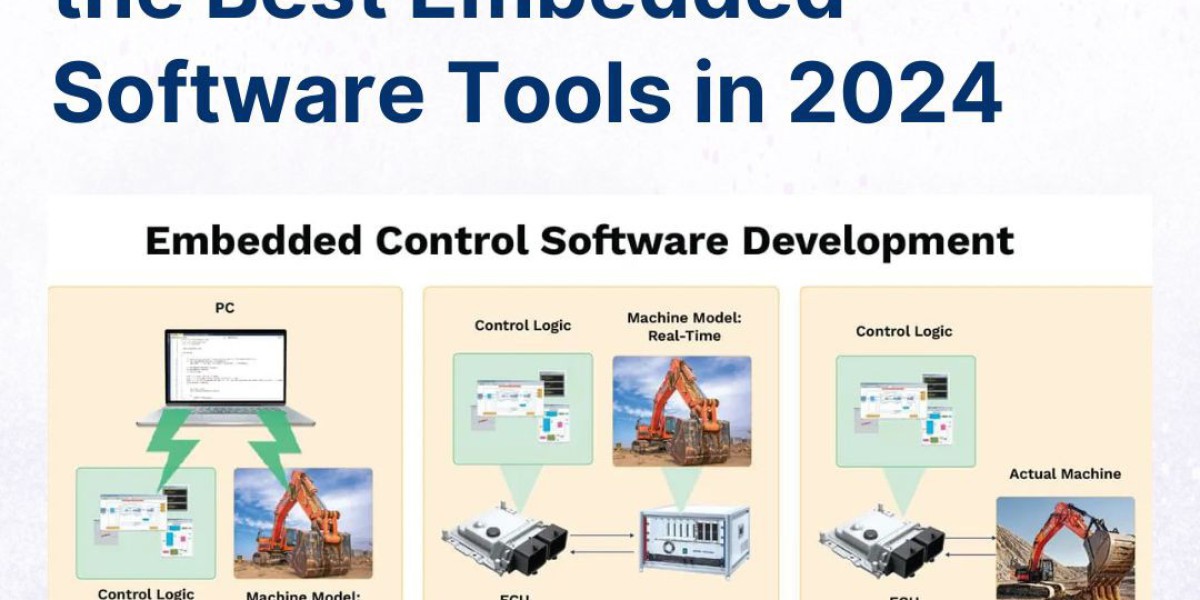Embedded software is a crucial component in the development of modern digital systems, ranging from simple microcontrollers to complex, real-time operating systems. As the industry advances, embedded software tools play a vital role in helping developers streamline their processes, reduce bugs, and enhance overall performance. In this comprehensive guide, we will explore the best-embedded software tools of 2024, focusing on features, benefits, and use cases. This article is aimed at software engineers, product developers, and decision-makers looking to make informed choices when selecting embedded software tools.
Introduction
In 2024, the embedded software landscape has evolved significantly. The demand for robust, efficient, and scalable embedded systems has pushed companies to innovate and enhance their development tools. Servotech, a leader in embedded software solutions, provides a range of tools that cater to various development needs. These tools help engineers reduce development time, enhance performance, and ensure compliance with industry standards. In this article, we will delve into the most effective embedded software tools that are shaping the industry today.
What Are Embedded Software Tools?
Embedded software tools are specialized software applications designed to aid in the creation, debugging, and optimization of embedded systems. These tools range from integrated development environments (IDEs) and compilers to debuggers, simulation tools, and version control systems. They help developers write, test, and optimize code for embedded devices, which often have limited resources and specific performance requirements.
Top Embedded Software Tools in 2024
1. Integrated Development Environments (IDEs)
IDEs are the cornerstone of embedded software development. They provide a comprehensive platform where developers can write, test, and debug their code. Popular IDEs include:
Keil MDK: Known for its powerful debugging capabilities and real-time trace.
Eclipse IDE: A versatile, open-source platform suitable for various programming languages and microcontrollers.
2. Compilers
Compilers convert source code written in high-level languages into machine code that a microcontroller can execute. Key compilers in 2024 include:
GCC (GNU Compiler Collection): An open-source compiler that supports multiple languages and architectures.
IAR Embedded Workbench: Offers high optimization levels for performance-critical applications.
3. Debuggers
Debugging tools are essential for identifying and fixing issues in embedded systems. They provide insights into the system's behavior, helping developers ensure the software runs as expected. Leading debuggers include:
GDB (GNU Debugger): A powerful, command-line-based debugging tool.
Lauterbach TRACE32: Known for its extensive debugging features, especially in real-time systems.
Choosing the Right Embedded Software Tools
When selecting embedded software tools, several factors need to be considered:
Project Requirements: The choice of tools depends on the specific requirements of the project, such as performance constraints, memory usage, and the target microcontroller.
Scalability: Choose tools that can scale with your project's complexity and future updates.
Support and Documentation: Tools with extensive documentation and active support communities can significantly reduce development time.
How Servotech Enhances Embedded Software Development
Servotech offers a range of embedded software tools that cater to different stages of development. Their solutions are designed to help developers accelerate their workflows, reduce errors, and achieve higher performance. The company provides tools that integrate seamlessly with popular IDEs, compilers, and debuggers, allowing for a more efficient development process.
For more information on Servotech's embedded software tools, visit their official website.
Conclusion
In 2024, the landscape of embedded software development is rapidly evolving. Choosing the right tools can make a significant difference in the success of a project. The embedded software tools highlighted in this guide offer a mix of performance, flexibility, and scalability that can meet the needs of various applications. By leveraging these tools, developers can enhance their productivity and ensure the delivery of robust, reliable embedded systems.








